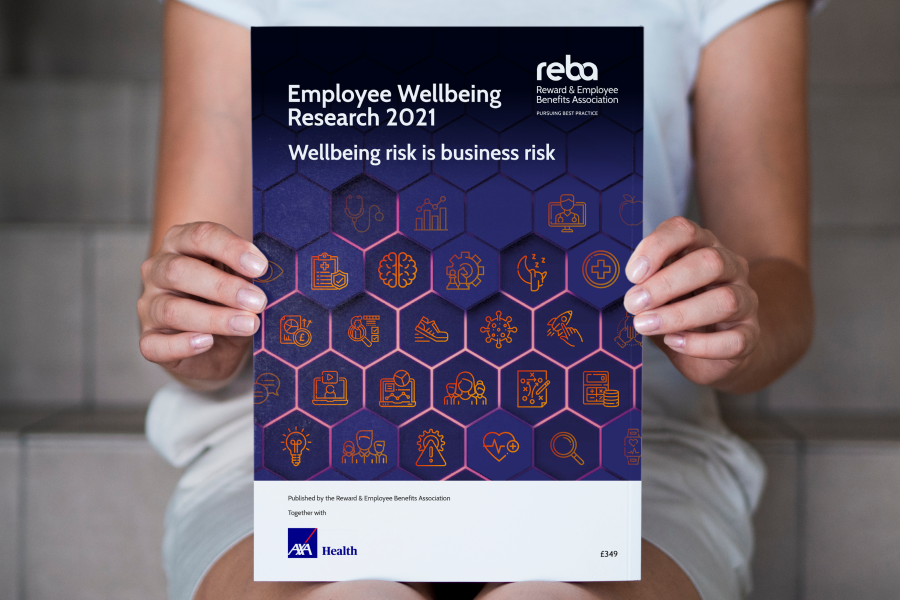Poor employee wellbeing is a direct risk to business growth, finds Employee Wellbeing Research 2021

The research, conducted in partnership with AXA Health, found that 95% of respondents said that a high pressure/high intensity work environment for employees is a key business risk, with 50% classifying it as high risk. Conditions such as burnout and poor mental health are now being seen as a risk to overall business performance.
Encouragingly, many organisations are taking steps to tackle this business risk. Despite the tough economic climate, 47% of organisations predict their wellbeing budgets will rise in 2021, signaling that boardrooms no longer view investment into employee health as expendable.
Commenting on the findings, Debi O’Donovan, director and co-founder of REBA, said: “The impact of the Covid-19 pandemic on employee wellbeing has been enormous. It has brought risk to the fore across all areas of wellbeing – physical, mental, financial and social – and magnified issues such as high pressure work environments which were already damaging employee health even before the current crisis.”
The pandemic has also accelerated existing wellbeing trends, including a move towards greater provision of digital healthcare. This year’s findings showed a 69% increase in use of virtual GPs compared with 2020, a 60% rise in the number of employers offering a wellbeing app and 30% growth in those offering a dedicated health and wellbeing website.
Greater use of digital tools should also help to drive wider and better use of data. The Employee Wellbeing Research 2021 found that nearly half of employers (47%) say the biggest barrier to understanding the effectiveness of wellbeing initiatives is a lack of key performance indicators to measure against. At present, only 19% of private sector respondents say that their wellbeing strategy is closely linked to business strategy.
The varied impact of the pandemic on individuals within the workforce and in society generally is also making employers forge closer links between wellbeing and diversity, equity and inclusivity. Nearly two thirds (63%) of respondents said that improving the inclusivity of their wellbeing strategy is a key priority for 2021, and over a third (38%) said that they will be introducing new benefits to address emerging needs.
O’Donovan said: “While a small number of employers have a strong lens on inclusion across their wellbeing programmes, our data shows that there will be an increased focus during 2021. The pandemic has widened existing socio-economic disparities between different groups in the workforce. That could have a long-lasting impact on employee engagement and productivity, and employers need to address this now through their wellbeing programmes and workplace culture.”
Soraya Chamberlain, corporate director for AXA Health, added: “Today’s wellbeing programmes are being asked to offer both breadth and depth in supporting people risk. This report highlights that clear, collaborative and sustained strategies will bear the best results, especially where organisations tap into valuable tools and resources, in particular, their line managers, who play such a vital role in their programmes’ success.”
The Employee Wellbeing Research 2021 will be published at 2pm on 14th April. REBA’s Professional Members can access the report for free.






